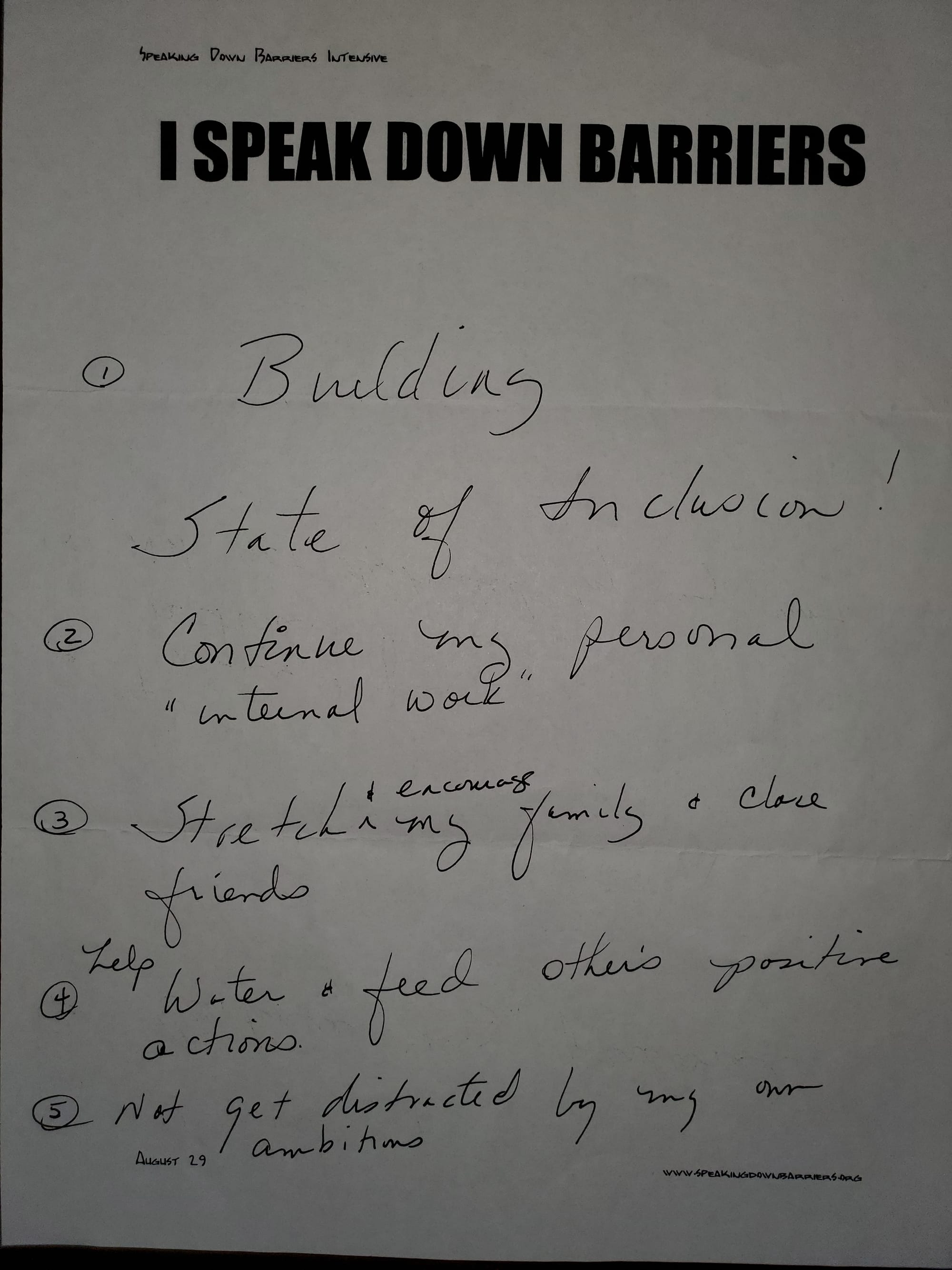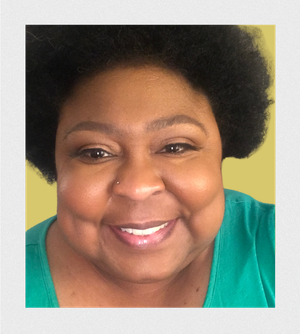We can make it as safe as possible, but then people have to choose to be brave. So, we try to make a space for people to feel comfortable when they can make those steps of bravery. – Davelyn Hill, Executive Director of Speaking Down Barriers
I felt excited and nervous as I drove the forty-five minutes to the neighboring town of Spartanburg, South Carolina. My Saturday was to be spent in a day-long intensive session on race with Speaking Down Barriers. I’d recently committed to building a more inclusive community through the small company I’d formed, State of Inclusion. Still, I had so much to learn about myself, prepare for this work, find my voice, and even feel I had a right to speak on this subject.
In our first exercise, we were paired with another person that we did not know from our diverse group of twelve. We were each asked to stand in front of the group across from the other person and say how we honestly saw the other person and what we imagined their background to be. It caused us to confront stereotypes we might harbor, but in some cases, the assessments were fair. A young man in his twenties told me, an older white woman, that he expected I had grown up in a traditional southern family and had lived a “separate,” segregated life. I guess it could have been written on my face. Maybe it was a stereotype for him, but a truth for me. It felt strange to have that part of me so easily read by another, examined in front of others, to perhaps be less well thought of in this context because of it. It was not painful but carried some discomfort I was not used to.
Later, as a group, we engaged in a privilege walk. We lined up side by side and were asked a series of questions. We each took a step forward or a step back based on our answers. We were asked questions like:
- If you were the first person in your family to attend college, take one step back.
- If you never worry about crime, drugs, rape, or other violent threats in your neighborhood, take one step forward.
- If you have ever skipped a meal or went away from a meal hungry because there was not enough money to buy food, take one step back.
Each question gently teased out privilege. At the end of the exercise, we instantly saw in our small group how far apart people could be due to things over which they have no control. It remains one of my most significant ah-ha moments regarding privilege.
Later in the day, we sat in a circle as we shared stories with one another. One of the facilitators shared a very personal story, which gave us all room to open ourselves more to share our own stories. As the day progressed, we moved deeper together. Deeper than I would have thought possible for a room full of strangers.
One of the things we did at the end of that session was to write a note to ourselves. We were given a piece of paper with a big title across the top: “I speak down barriers.” We were asked to write five ways we intended to speak down barriers. What we wrote was private. We folded it, sealed it into an envelope, and addressed it to ourselves. The facilitators waited a few weeks and then mailed the envelopes to us.
My five actions from August, 2015.

Commitment Tools
At the end of the session, we challenged ourselves by writing down our five actions and committing to them. It was a powerful way to remind us of the intentions we formed during the session, to refresh and bring back the feelings of the day, and to check ourselves. The letter we wrote to ourselves at the end of the session was a type of commitment tool. It was a simple technique but extended the day’s learning into the future. By reflecting on how we would Speak Down Barriers, we set a personal intention and were gently reminded of that intention.
All Learning is Personal
Not everyone can, or is interested in, spending a whole day on DEI concepts to challenge their thinking and expand their understanding. Some will be. Some will want to go even further. In other cases, it might be more effective to meet and discuss over coffee or shared food with potluck suppers. Still, others may be interested in a more intellectual approach through book clubs or film screenings and discussion. In Community Learning, our offerings will need to meet community members where they are and evolve over time as the community grows. Still, skilled facilitation, conversation, and self-reflection are at the heart of this work. Our challenge is to create the opportunity and a safe place, a container, for awakening and learning to occur and to make that available as individuals are ready along their personal journey.
Facilitators and Peer Mentors
I later learned not every participant in my intensive training class was a student. Some were paid or volunteer participants who joined with the specific purpose of providing a deeper and more diverse experience for learning and conversation to happen. While they were not visible and formal facilitators, they acted as mentors, guides, and stimulators throughout the learning process. It is essential to recognize that when those of us who lack specific lived experiences wish to enter into deeper understanding through interaction with those who have different lived experiences, this should be done respectfully. It should be non-extractive and non-transactional. Individuals who are there to help advance the learning of other community members should be compensated for their time or freely volunteer. They should also be allowed to practice safe techniques for engaging with permission to step away from the process if it harms or triggers them. Skilled facilitators are critical.
Learn more about Speaking Down Barriers.


